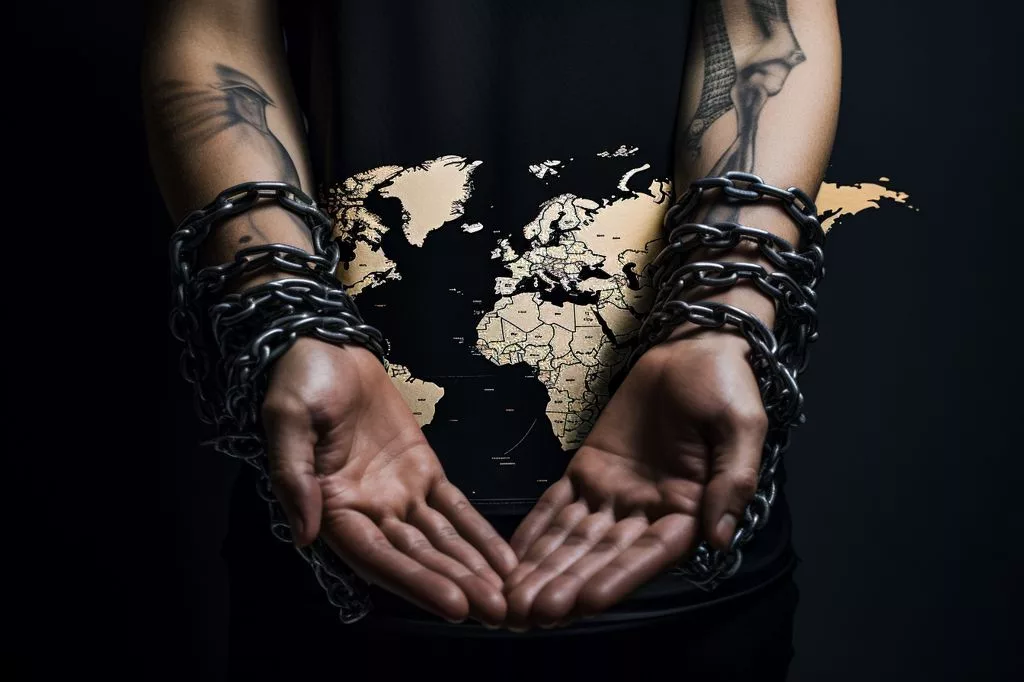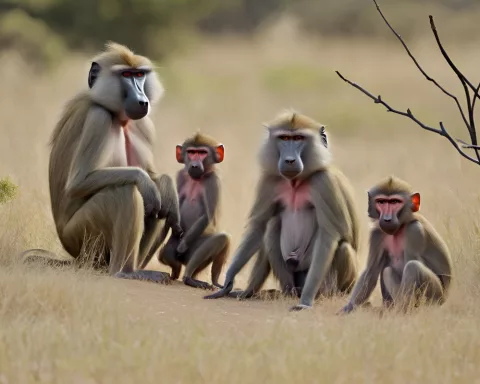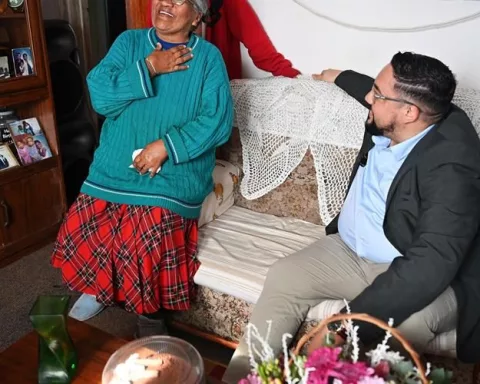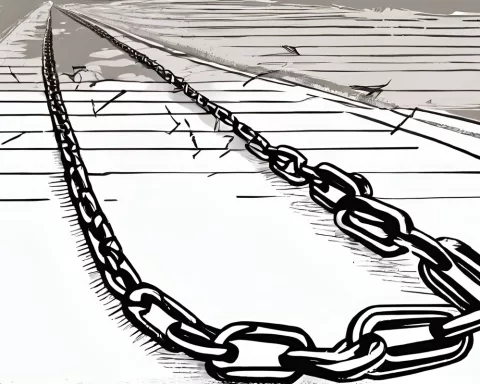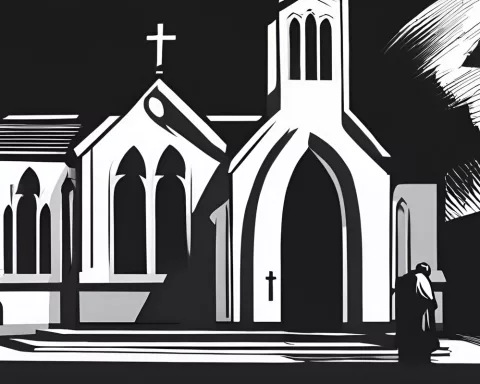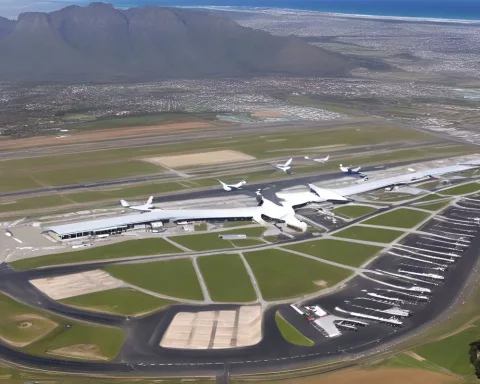Free to Fly, a non-profit organization based in Cape Town, South Africa, is taking a stand against human trafficking by raising awareness about the issue through activities such as hosting a special screening of the film Priceless. The organization conducts talks at schools and other venues to educate the public about the signs and methods of human trafficking. Free to Fly also plans to launch South Africa’s first safe havens specifically designed for child survivors of human trafficking.
What is Free to Fly and how is it combatting human trafficking in South Africa?
Cape Town-based non-profit organization Free to Fly is raising awareness about human trafficking in South Africa by hosting a special screening of the film Priceless. The organization aims to educate the public about the various signs and methods of human trafficking, regularly conducting talks at schools and other venues. Free to Fly also plans to launch the first safe havens in South Africa specifically designed for child survivors.
Unveiling the Harsh Truth of Human Trafficking Through Film
Cape Town-based non-profit organization Free to Fly is determined to combat the growing issue of human trafficking in South Africa. To raise awareness about this alarming problem, the organization is hosting a special screening of the film Priceless on Friday in Bellville, a northern suburb of Cape Town. Released in 2016 and directed by Ben Smallbone, the movie tells a gripping tale that exposes the tragic reality of human trafficking.
The film’s plot revolves around James, played by Joel Smallbone, who takes on a cross-country delivery job without knowing its specifics. As the story progresses, he finds out that his cargo consists of two young women, which leads him on a life-altering journey. Salome Geiger, co-founder of Free to Fly, says that the movie reveals one of the many factors contributing to human trafficking. Although it may not cover everything associated with this intricate issue, it offers a window into the bleak world faced by numerous victims.
The problem seems to be escalating in Cape Town’s northern suburbs. “Many suburbs in Cape Town, sadly, have this problem. It’s definitely getting worse. People are becoming more desperate,” Geiger notes. The efforts of Free to Fly in battling human trafficking emphasize the critical need to confront this growing social issue.
Gauging the Scope of the Problem
To provide some context, the United States Government identified and referred 74 trafficking victims to care in South Africa earlier this year, as stated in the Trafficking in Persons report. The victims included 42 labor trafficking victims, 23 sex trafficking victims, and nine victims of unspecified forms of trafficking. In comparison, the previous reporting period identified 83 victims, with 74 referred for care. However, Professor Philip Frankel, author of Human Trafficking in South Africa, estimates that there could be up to 250,000 victims in the country.
Free to Fly aims to raise awareness about the various signs and methods of human trafficking, stressing that victims often do not recognize that they are being trafficked. Geiger highlights a new trend wherein victims are invited to sham job interviews or enticed by fake modeling or sports contracts. This unsettling trend underscores the need for increased vigilance and awareness. In many cases, victims come from other countries and cannot comprehend the local languages, further ensnaring them in this vicious cycle.
Recognizing the urgency of spreading awareness, Free to Fly regularly conducts talks at schools and other venues, informing the community about the dangers and indicators of human trafficking. The organization also provides the government with information on potential victims, playing an essential role in fighting this atrocious crime.
Creating Safe Spaces for Child Survivors
As part of its ongoing efforts, the non-profit organization plans to launch the first safe havens in South Africa specifically designed for child survivors, according to News24. This groundbreaking initiative will significantly affect the lives of numerous children who have been subjected to various forms of trafficking.
The special screening of Priceless, hosted by Free to Fly, seeks to educate and inform the public about the harsh truths of human trafficking in South Africa. Featuring an intricate narrative interwoven with anecdotes and descriptions, the film serves as an impactful tool in the organization’s mission to raise awareness and effect change.
To support Free to Fly’s cause and attend the Priceless movie screening, the details are as follows:
- Cost: From R25
- Time: 7 pm
- Location: 44 Mabel Street, Oakdale, Bellville, Cape Town
- Tickets: https://www.quicket.co.za/events/232659-priceless-movie-viewing/# /
By raising awareness about human trafficking and supporting the initiatives of organizations like Free to Fly, we can make a difference in the lives of thousands of victims. It is vital that we take collective action to stand against this abhorrent crime and strive to create a safer and more empathetic world for all.
1. What is Free to Fly and how is it fighting against human trafficking in South Africa?
Free to Fly is a Cape Town-based non-profit organization that raises awareness about human trafficking in South Africa by hosting screenings of the film Priceless and conducting talks at schools and other venues to educate the public about the signs and methods of human trafficking. Free to Fly also plans to launch the first safe havens in South Africa specifically designed for child survivors of human trafficking.
2. What is Priceless and how does it raise awareness about human trafficking?
Priceless is a film directed by Ben Smallbone that tells a gripping tale exposing the tragic reality of human trafficking. The film’s plot revolves around James, who takes on a cross-country delivery job without knowing the specifics, only to find out that his cargo consists of two young women. The special screening of Priceless hosted by Free to Fly seeks to educate and inform the public about the harsh truths of human trafficking in South Africa.
3. What is the scope of human trafficking in South Africa?
According to the United States Government, 74 trafficking victims were identified and referred to care in South Africa earlier this year. However, Professor Philip Frankel, author of Human Trafficking in South Africa, estimates that there could be up to 250,000 victims in the country.
4. What are the various signs and methods of human trafficking?
Free to Fly aims to raise awareness about the various signs and methods of human trafficking, stressing that victims often do not recognize that they are being trafficked. Victims are often invited to sham job interviews or enticed by fake modeling or sports contracts. In many cases, victims come from other countries and cannot comprehend the local languages, further ensnaring them in this vicious cycle.
5. Why is it important to raise awareness about human trafficking?
Raising awareness about human trafficking is vital because victims often do not recognize that they are being trafficked. By educating the public about the signs and methods of human trafficking, we can help prevent more people from becoming victims.
6. What is Free to Fly’s role in fighting human trafficking?
Free to Fly regularly conducts talks at schools and other venues, informing the community about the dangers and indicators of human trafficking. The organization also provides the government with information on potential victims, playing an essential role in fighting this atrocious crime.
7. What are the first safe havens in South Africa specifically designed for child survivors of human trafficking?
Free to Fly plans to launch the first safe havens in South Africa specifically designed for child survivors of human trafficking. This groundbreaking initiative will significantly affect the lives of numerous children who have been subjected to various forms of trafficking.
8. How can I support Free to Fly’s cause and attend the Priceless movie screening?
To support Free to Fly’s cause and attend the Priceless movie screening, you can purchase tickets through Quicket. The screening will take place on Friday in Bellville, a northern suburb of Cape Town. Tickets cost from R25 and the screening begins at 7 pm.

